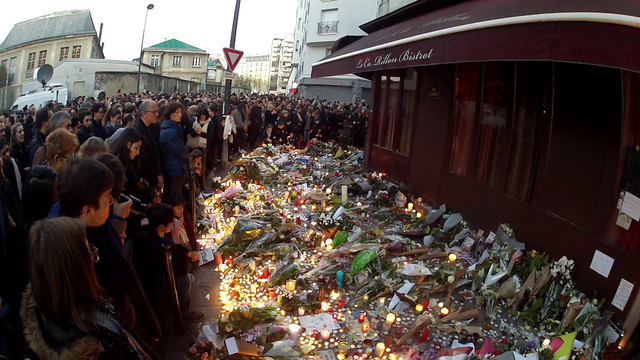
Foto, video e e-mail salvate su iCloud potranno essere visualizzati dal governo. Attivisti in allarme.
Quasi due anni fa il governo cinese si impose con il colosso californiano per permettere che i dati salvati su iCloud venissero trasferiti su server situati in Cina. Dopo iniziali resistenze da Cupertino, Apple il 28 febbraio ha dovuto cedere per uniformarsi alle leggi sulla cyber security locali e non perdere il proprio maggiore mercato in Asia (iPhone 7 fu il secondo smartphone più acquistato in Cina nel 2017). Tim Cook, boss di Apple, ha dichiarato di sperare di poter “alleggerire le norme” in futuro.
Questo provvedimento renderà molto semplice per gli apparati governativi ottenere informazioni sui cittadini: basterà infatti la richiesta di un giudice cinese per bypassare il nulla osta delle autorità americane.

Aggirare il provvedimento: non usare iCloud
Gli attivisti per i diritti umani e Reporters sans Frontières hanno consigliato ai cittadini e ai giornalisti di disattivare il backup automatico di iPhone, iPad e Mac su iCloud, il famoso archivio virtuale in cui stoccare tutti i propri dati. Questo permetterebbe di aggirare la nuova normativa, continuando a utilizzare i propri dispositivi senza ingerenze governative.
Jing Zhao, azionista Apple e volontario nelle associazioni di difesa dei cittadini, ha pronosticato effetti molto più gravi di quelli avvenuti dieci anni fa per la cessione di dati da parte di Yahoo!. Già allora la presa visione di alcuni dati condusse ad arresti e condanne a morte, ma oggi sempre più informazioni personali sono affidate ai dispositivi elettronici.

I precedenti: quando Apple si oppose alla violazione dell’iPhone di un terrorista
Dopo lo scandalo Datagate del 2013, quando The Guardian e The Washington Post pubblicarono inchieste giornalistiche sulla violazione dei dati personali operata dall’NSA (Agenzia Sicurezza Nazionale statunitense), Apple strinse le redini sulla privacy degli utenti, creando un sistema di criptazione dei dati inviolabile. Conferma di tale scelta di mercato viene anche da Camille Fischer, leader della Electronic Frontier Foundation per la difesa dei diritti digitali, che ha sottolineato dopo la notizia che lo standard americano sulla privacy è molto più stringente di quelli di molti paesi.
E’ storica anche la reazione dell’azienda dopo l’attentato di San Bernardino, quando si rifiutò di collaborare con l’FBI per creare un accesso nell’iPhone del terrorista per scovare eventuali informazioni su prossimi attacchi e complici dell’operazione.
Questi precedenti che avevano tanto rassicurato gli utenti Apple non sono però bastati a frenare la richiesta del governo cinese, che apre nuovi e inquietanti scenari sulle violazioni dei diritti umani e sui pericoli corsi quotidianamente dalla popolazione.


Almost two years ago the Chinese government imposed itself with the California giant to allow the data saved on iCloud to be transferred to servers located in China. After initial resistance from Cupertino, Apple had to sell on February 28 to comply with the laws on local cyber security and not lose its largest market in Asia (iPhone 7 was the second most popular smartphone in China in 2017). Tim Cook, the boss of Apple, said he hoped to "lighten the rules" in the future.
This provision will make it very easy for government agencies to obtain information on citizens: it will suffice to request a Chinese judge to bypass the clearance of the American authorities.

To circumvent the provision: do not use iCloud
Human rights activists and Reporters Without Borders have advised citizens and journalists to deactivate the automatic backup of iPhone, iPad and Mac on iCloud, the famous virtual archive where you can store all your data. This would circumvent the new legislation, continuing to use their devices without government interference.
Jing Zhao, Apple's shareholder and a volunteer in the citizens' defense associations, has predicted effects far more serious than those that occurred ten years ago for the sale of data by Yahoo !. Even then, the taking of some data led to arrests and death sentences, but today more and more personal information is entrusted to electronic devices.

Background: when Apple opposed the violation of a terrorist's iPhone
After the Datagate scandal of 2013, when The Guardian and The Washington Post published journalistic inquiries on the violation of personal data operated by the NSA (US National Security Agency), Apple tightened the reins on the privacy of users, creating an inviolable data encryption system . Confirmation of this market choice also comes from Camille Fischer, leader of the Electronic Frontier Foundation for the defense of digital rights, who underlined after the news that the American standard on privacy is much more stringent than those of many countries.
The company's reaction to the San Bernardino attack is also historic, when it refused to collaborate with the FBI to create an access to the terrorist's iPhone to find out information about the upcoming attacks and accomplices of the operation.
These precedents that had so reassured Apple users were not enough to curb the request of the Chinese government, which opens new and disturbing scenarios on human rights violations and the dangers run daily by the population
Source Image nr.1: CCO Creative Commons - Pixabay

China is smart enough about the implementation of their security, there is a lot of possibility that the US can spy them.
Downvoting a post can decrease pending rewards and make it less visible. Common reasons:
Submit
Bellissimo articolo @franky4dita
Ormai cercare di usare il cloud il meno possibile è il meglio da farsi!
Io sono un utilizzatore Apple da anni ed è brutto leggere queste notizie visto che la sicurezza è il punto di forza di Apple stessa
PS come fai a scrivere più in piccolo? Per esempio dove c'è Source Image
Un saluto!
Luca 👋
Downvoting a post can decrease pending rewards and make it less visible. Common reasons:
Submit
grazie per essere passato @bafi. Per le img ti contatto in asilo e ti spiego.
Downvoting a post can decrease pending rewards and make it less visible. Common reasons:
Submit
This comment has received a 9.99 % upvote from @webdeals thanks @bafi.
Downvoting a post can decrease pending rewards and make it less visible. Common reasons:
Submit
Ciao @franky4dita, questi politici invece di pensare di fare del loro meglio per assicurare il benessere al proprio popolo, non fanno altro che i loro interessi personali per riempire le loro tasche.
Downvoting a post can decrease pending rewards and make it less visible. Common reasons:
Submit
C'e' sempre quell'alone di dittatura in Cina...
Downvoting a post can decrease pending rewards and make it less visible. Common reasons:
Submit
This comment has received a 3.33 % upvote from @webdeals thanks @taurus1983.
Downvoting a post can decrease pending rewards and make it less visible. Common reasons:
Submit
Immagino che le imposizioni del governo cinese riguardano solo i cittadini cinesi, non è così?
Downvoting a post can decrease pending rewards and make it less visible. Common reasons:
Submit
Per fortuna si John...
Downvoting a post can decrease pending rewards and make it less visible. Common reasons:
Submit
Gran bel post conoscitivo... il fatto di essere sempre controllato mi infastidisce e non poco. Un saluto @giornalista
Downvoting a post can decrease pending rewards and make it less visible. Common reasons:
Submit
Grazie @giornalista!
Downvoting a post can decrease pending rewards and make it less visible. Common reasons:
Submit
Gran bel post, Franky, soprattutto per le analogie con quello credo sarà purtroppo il futuro. La cancellazione totale della privacy e la mancanza di una libertà tanto cercata e ottenuta nella storia. Complimenti maestro! 😉
Downvoting a post can decrease pending rewards and make it less visible. Common reasons:
Submit
Grazie Mario, gentile come sempre...
Downvoting a post can decrease pending rewards and make it less visible. Common reasons:
Submit
Quando si dice di toccare sul borsello...
Downvoting a post can decrease pending rewards and make it less visible. Common reasons:
Submit